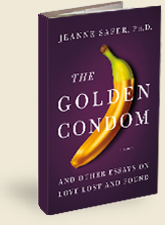Books
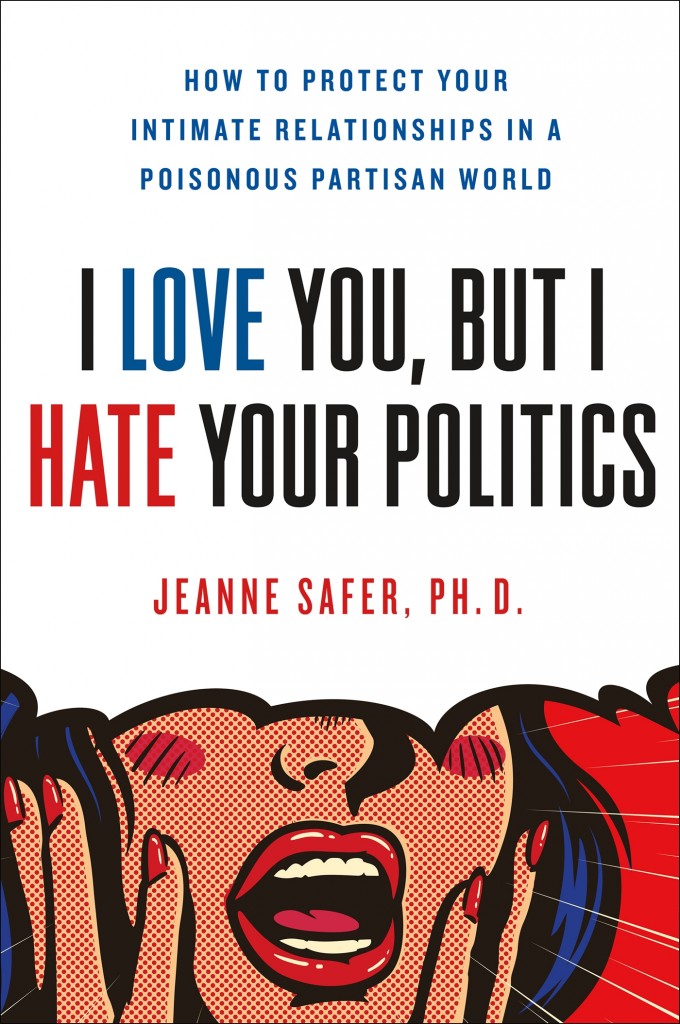
I Love You, But I Hate Your Politics
On Sale Now!Since the election of Donald J. Trump, political disagreements have been ravaging our personal relationships like never before. This already widespread phenomenon will continue to grow unless we can learn to fight it. Drawing from fifty interviews with every type of politically-mixed couple—from friends to relatives to lovers, no relationship is immune to this crisis—as well as her own experiences as a die-hard liberal happily married to a stalwart conservative, Dr. Jeanne Safer offers us a path forward in this practical guide to maintaining respect and intimacy in our increasingly divided world.
I Love You, But I Hate Your Politics is sure to educate and entertain anyone who has felt the strain of ideological differences in their personal life. No matter which side of the fence you’re on, Dr. Safer offers frank, practical advice for salvaging and strengthening your bonds with your loved ones. This book is required reading for any politically-minded friend, relative, or significant other in the Trump era.
Listen to an excerpt from the book:
ORDER YOUR COPY OF THE AUDIOBOOK TODAY!
Listen to Dr. Safer and Dr. Ned Hallowell discuss Protecting Your Intimate Relationships in a Poisonous Partisan World on Distraction:
Stream “Episode 8: Jeanne and Rick” of the I Love You, But I Hate Your Politics podcast:
Find the full I Love You, But I Hate Your Politics podcast series on Apple Podcasts and Stitcher:![]()
![]()
Praise for I Love You, But I Hate Your Politics
Booklist
After over 40 years working as a psychotherapist, Safer has spent a sizable amount of time exploring intimate relationships. She has noticed that now, more than ever before, cherished partnerships—be they romantic, platonic, familial, or otherwise—are greatly endangered by our polarized political climate. Through a series of case studies, Safer explores how people with diametrically opposed viewpoints can maintain healthy, functioning connections. Readers meet leftist fathers who reject right-leaning, veteran sons; conservative husbands who toss the word “liberal” as an insult-grenade at the peak of an argument; and friends who email PowerPoints to their ideological opponents outlining why the other is wrong. The most fervent takeaway: remembering that we cannot change others, only change ourselves. No matter how persistent or prescient we may be, we rarely convince others to join our side. With this, Safer offers rules of engagement for mixed-viewpoint commingling that prioritize respect and care. What makes Safer, a vocal liberal, so qualified? Her decades-long career exploring the mind, and an equally lengthy marriage to a staunchly conservative commentator.
Publishers Weekly
Psychotherapist and podcaster Safer (The Golden Condom) offers empathetic and sanity-saving advice on navigating the mine fields of political conversation. Safer, a liberal Democrat married to a conservative Republican, shares plenty of hard-won tips from her own life, notably not raising one’s voice, not discussing politics under the influence of alcohol, and, perhaps most apropos in the age of Facebook, not sending a partner unsolicited partisan articles or links on contentious topics. Cautionary tales of relationships gone awry are sprinkled throughout, including a story about female best friends who nearly ended their longtime friendship over a Trump-Hillary debate, and screaming fights between a liberal mother and her conservative teenage son. Safer encourages readers to examine their own motivations for discussions, and realize that most political fights in intimate relationships are not about politics but about a compulsion to change dissimilar views to align with one’s own. She also advises readers to use humor to defuse hostility and to work to understand the viewpoints of others. This insightful, well-reasoned book will help readers negotiate the political differences in their relationships with the people they love most.
National Review
Safer has written a wise, humane book that gives hope to people whose relationships are unraveling because of partisanship and leaves them with practical tools to help them repair the bond.
— Emily Esfanani Smith (Read the whole review here.)
Praise from Donna Brazile
Dr. Jeanne Safer has diagnosed the sociological and psychological influence of hyper-partisanship in our most intimate of relationships, especially within our families. I applaud her for courageously and honestly looking into these relationships and giving the reader candid advice on how to work toward civility.
— Donna Brazile, Democratic Party political strategist and author
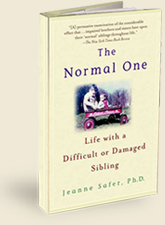
The Normal One
Life with a Difficult or Damaged Sibling
Finalist, Books for a Better Life Award
“I recognized myself on almost every page….I wish I had read [The Normal One] earlier in my life.”
—Barbara Walters from her memoir Audition

Cain’s Legacy
Liberating Siblings from a Lifetime of Rage, Shame, Secrecy and Regret
Cain’s Legacy is an engaging albeit sometimes disturbing exploration of the complex lives of human siblings…. For those suffering troubled relationships with brothers and sisters, Cain’s Legacy may open a door to understanding why and just perhaps the path to reconciliation.
—Winnipeg Free Press

Beyond Motherhood
Choosing a Life Without Children
Finalist, Books for a Better Life Award
“Beyond Motherhood is written with an impressive clarity and spareness. It’s honest, smart, brave, funny, and makes you think about things you don’t think about.”
—Peggy Noonan
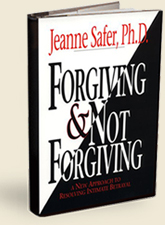
Forgiving and Not Forgiving
Why Sometimes It's Better Not to Forgive
“Jeanne Safer offers a brave and compassionate voice on a taboo subject with insight and clarity. Memorably engrossing, this book offers support and guidance to an often bewildering human emotional process.”
—Susan Forward, PhD
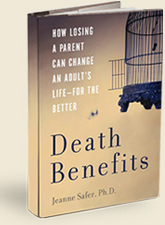
Death Benefits
How Losing a Parent Can Change an Adult's Life—for the Better
“It’s not all bad news.” Writes psychotherapist Jeanne Safer, PhD in her taboo-breaking first sentence, “The death of your parents can be the best thing that ever happens to you.” That’s not a no-more-tears prescription: it’s a strategy for getting a payback from your pain. Safer tells how a midlife orphan can sort through memories, salvaging what heals, packing away guilt and resentment, perhaps even unearthing a legacy of love.
—O: The Oprah magazine
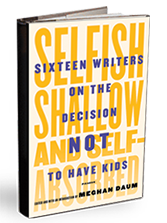
Selfish, Shallow & Self-Absorbed
Sixteen Writers On The Decision Not To Have Kids
Selfish, Shallow, and Self-Absorbed makes a thoughtful and passionate case for why parenthood is not the only path in life, taking our parent-centric, kid-fixated, baby-bump-patrolling culture to task in the process. What emerges is a more nuanced, diverse view of what it means to live a full, satisfying life.
—Hannah Pittard, author of Reunion

